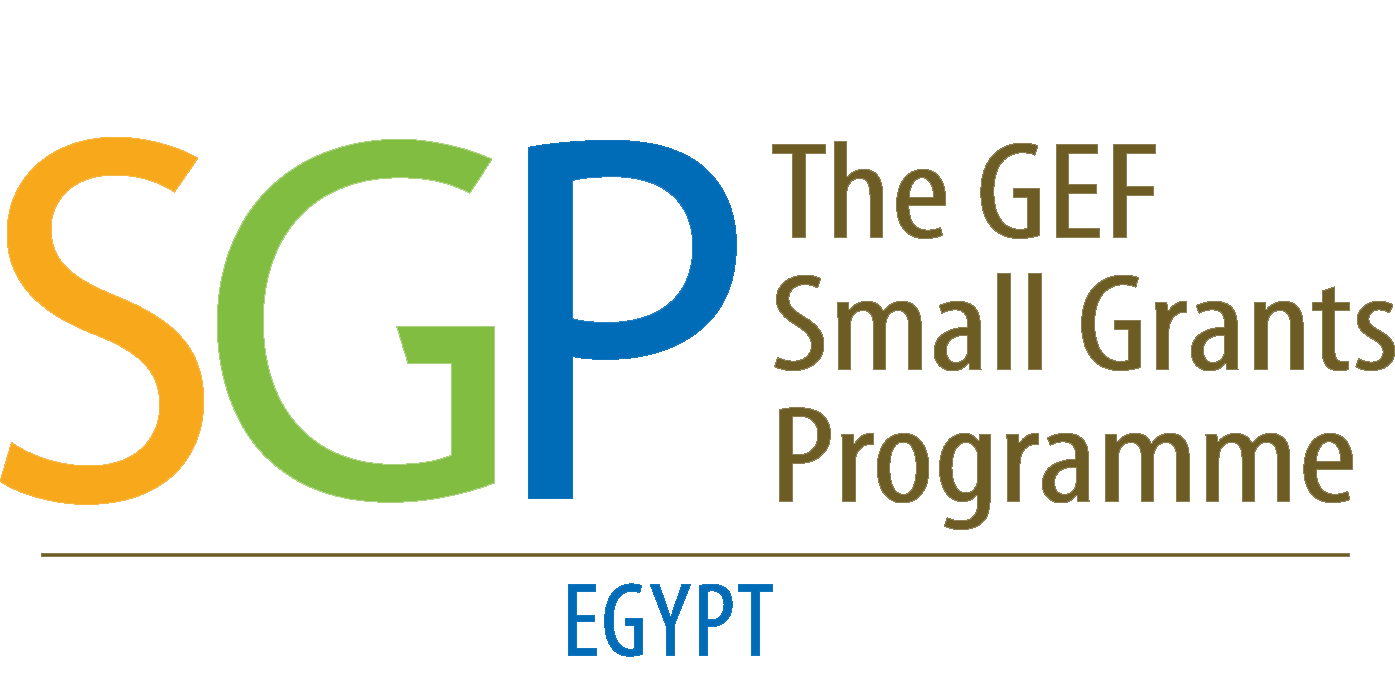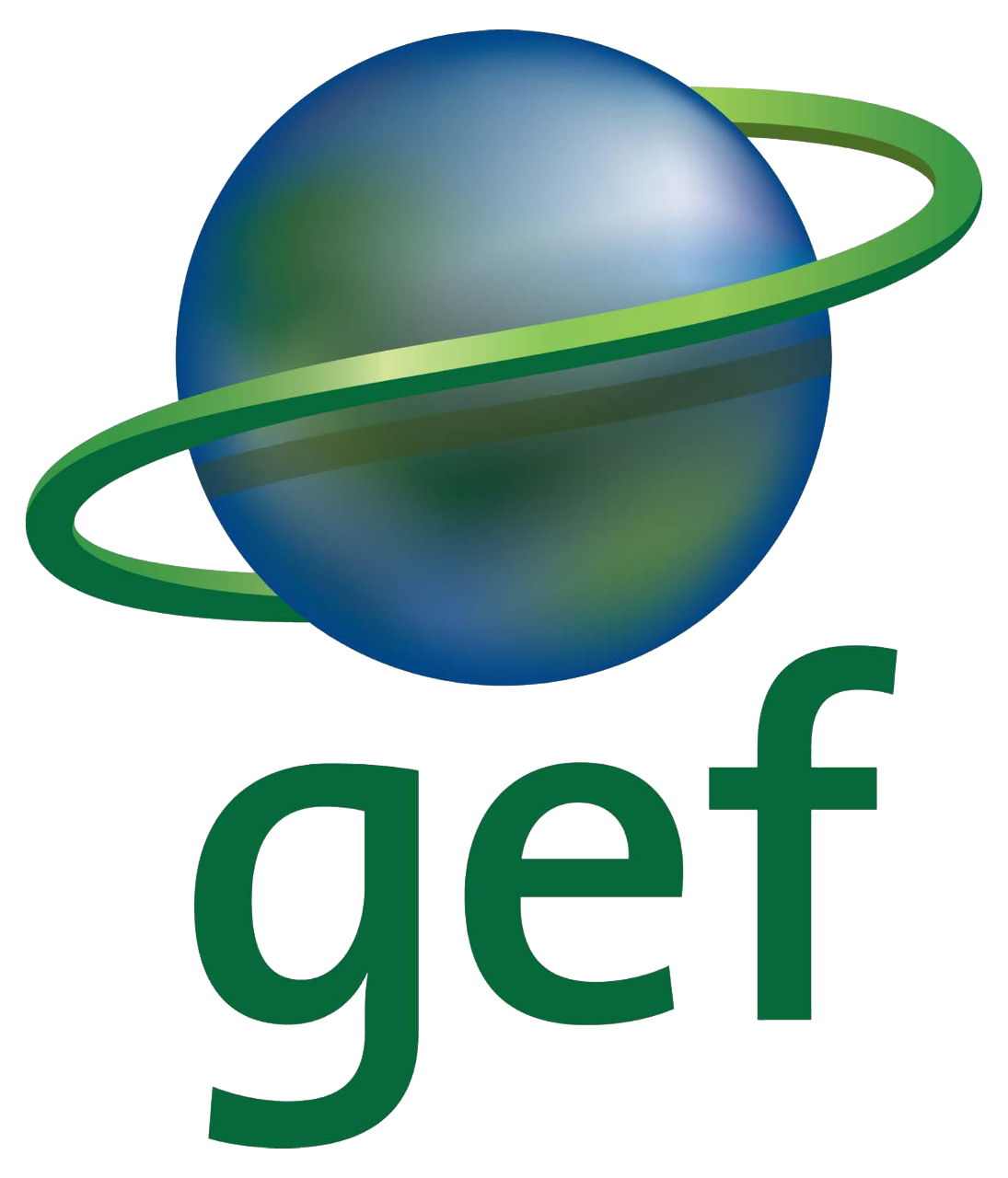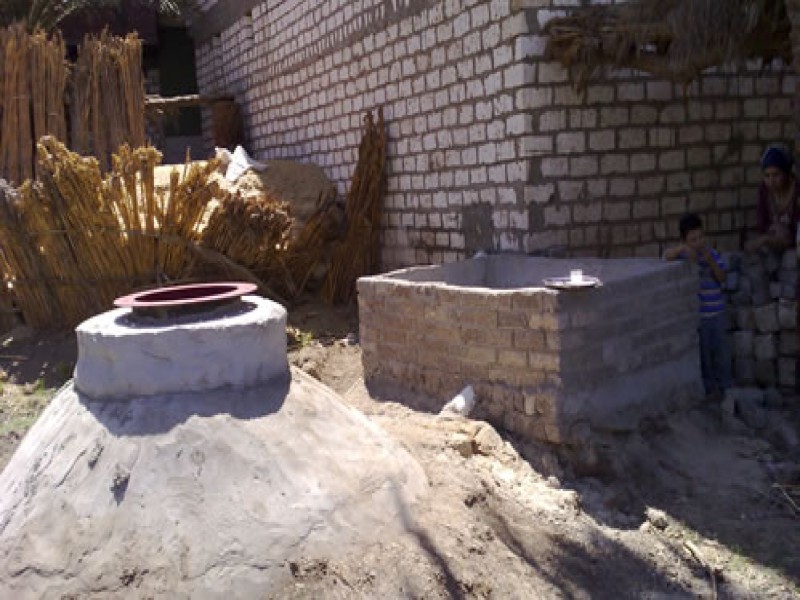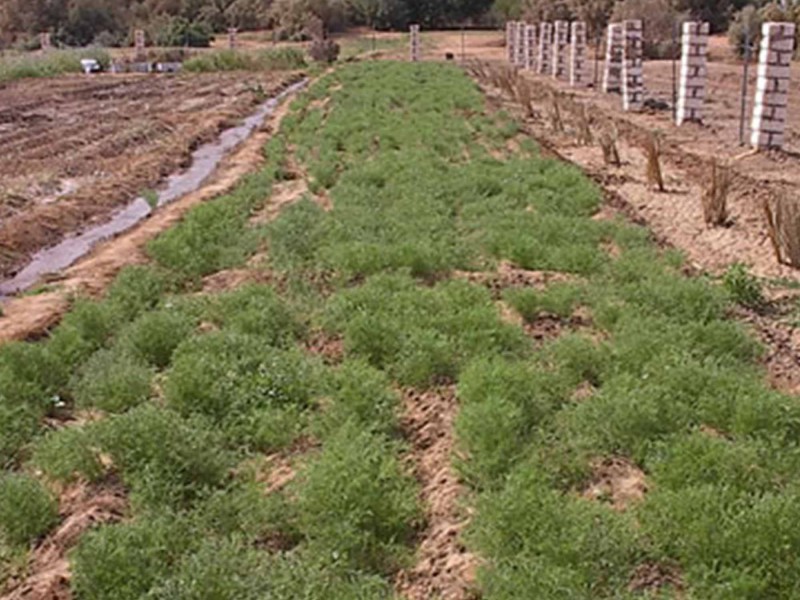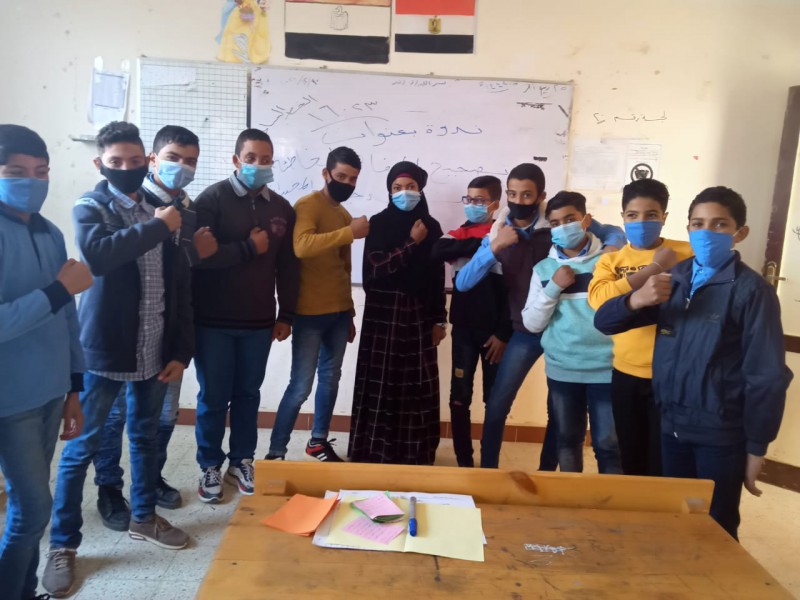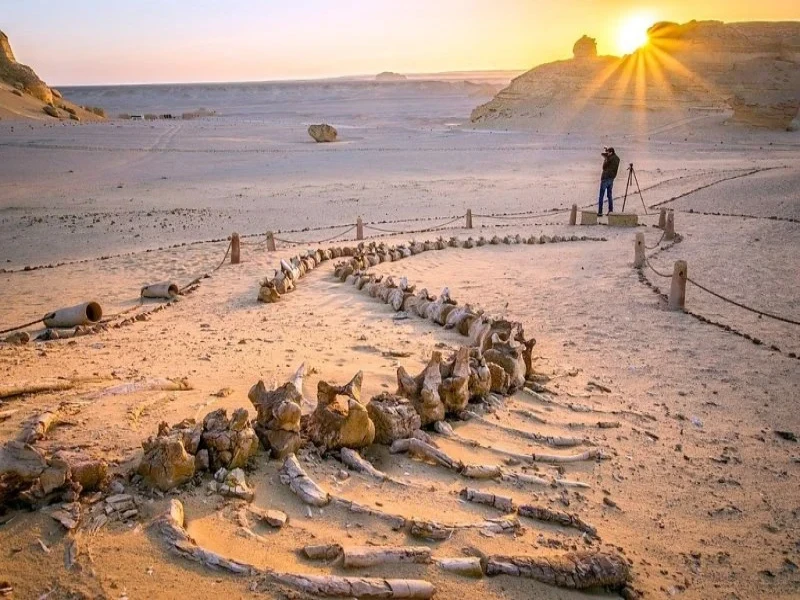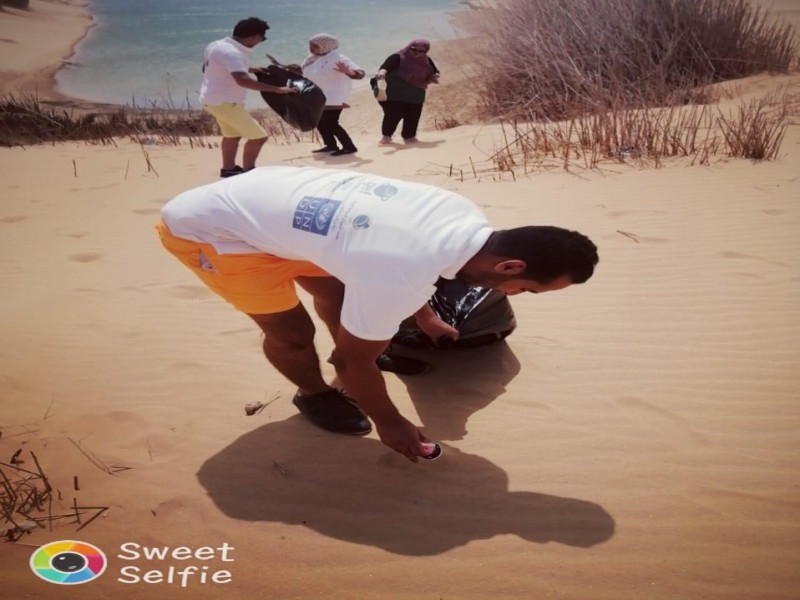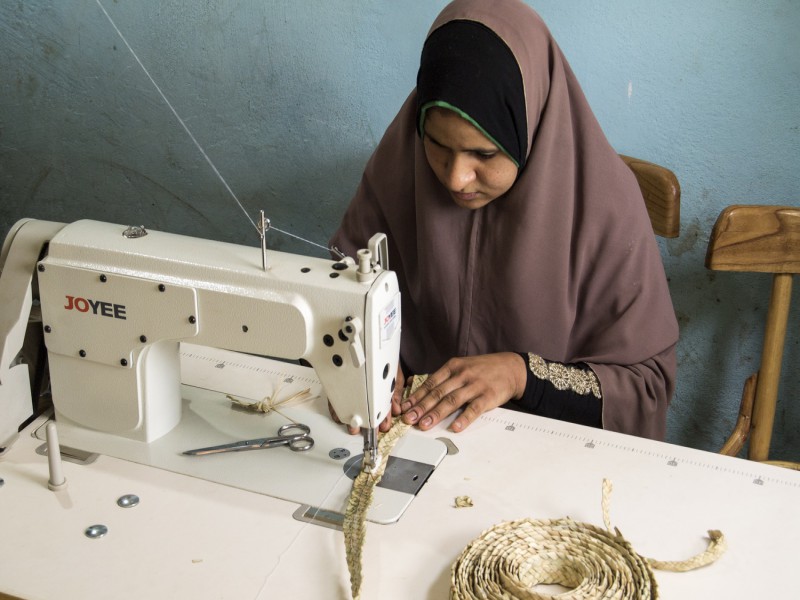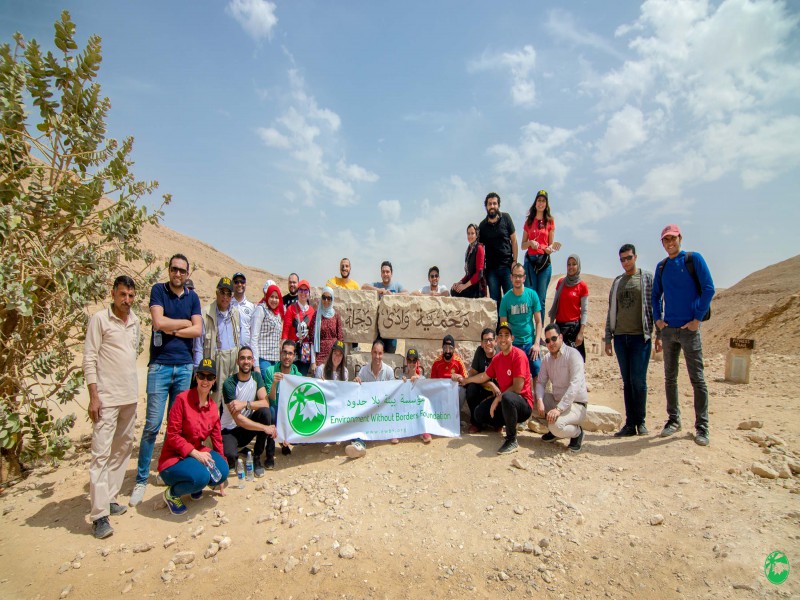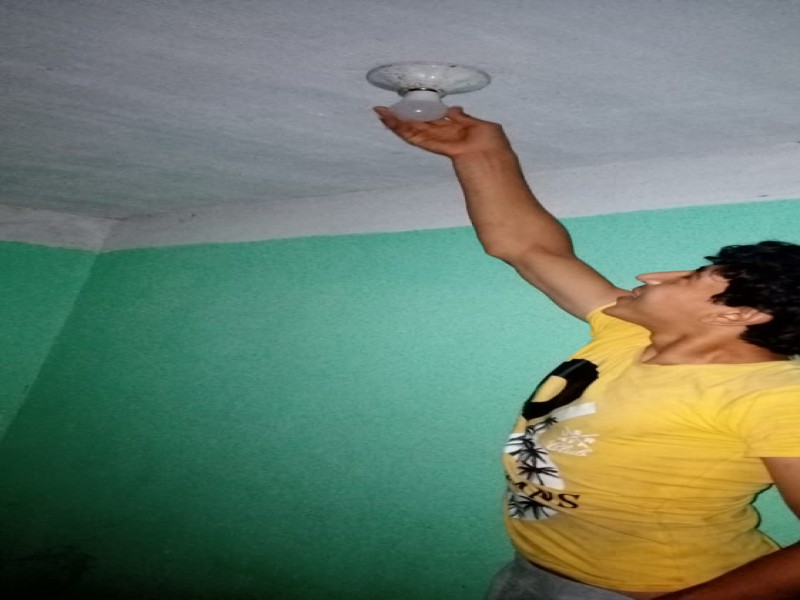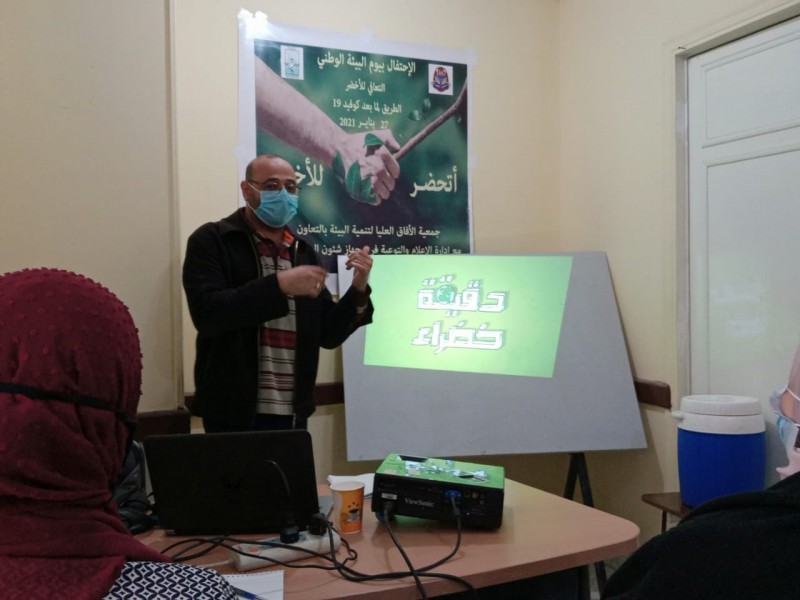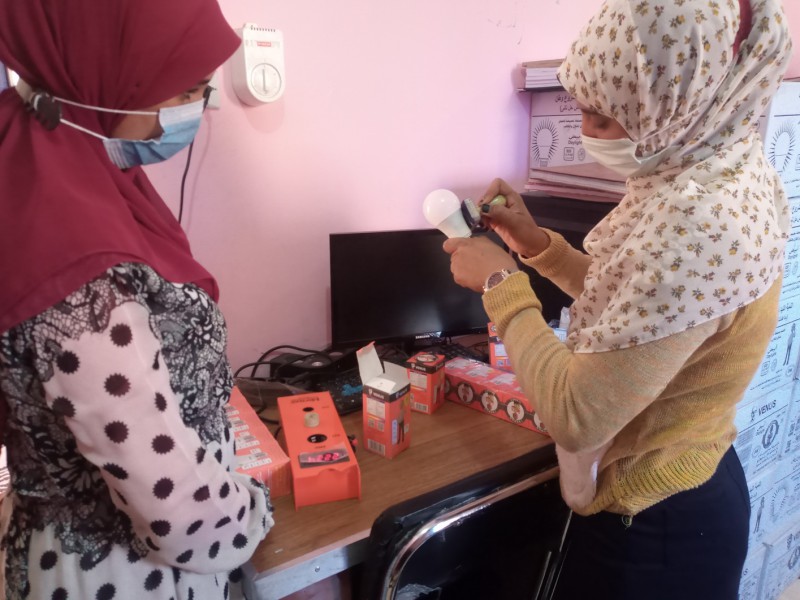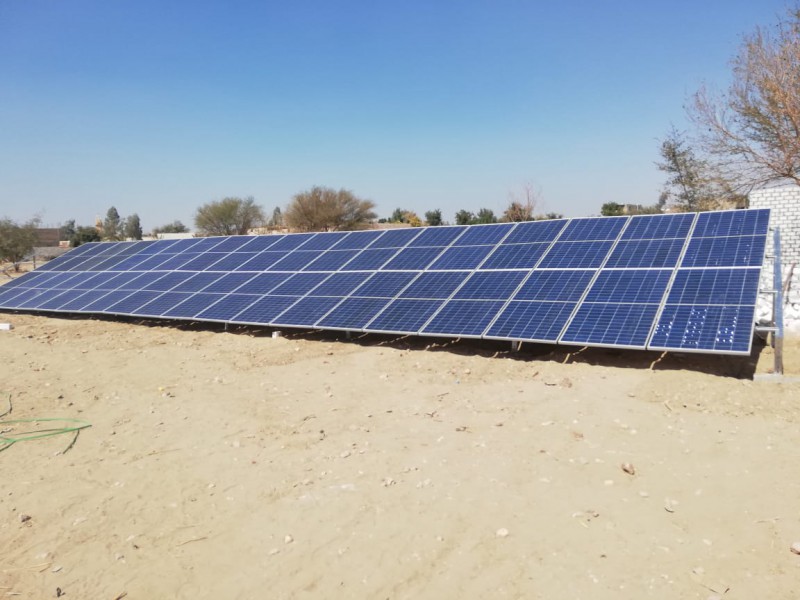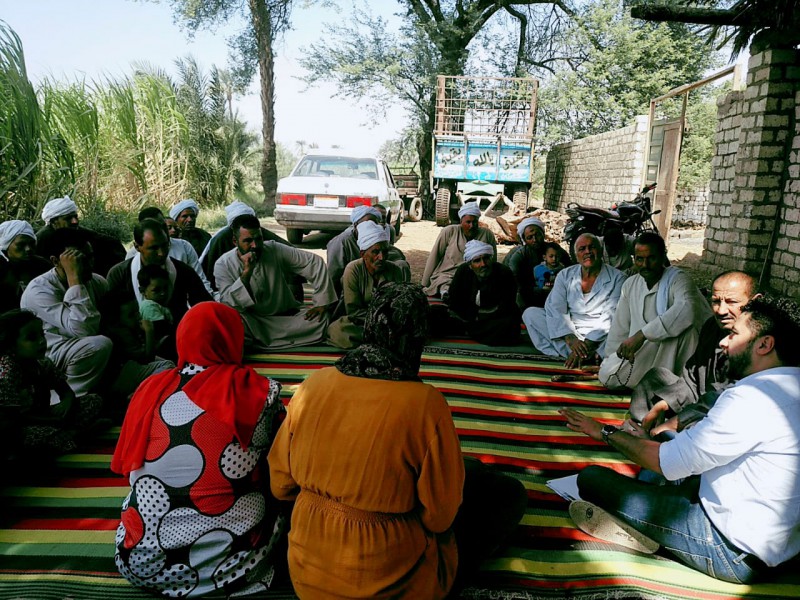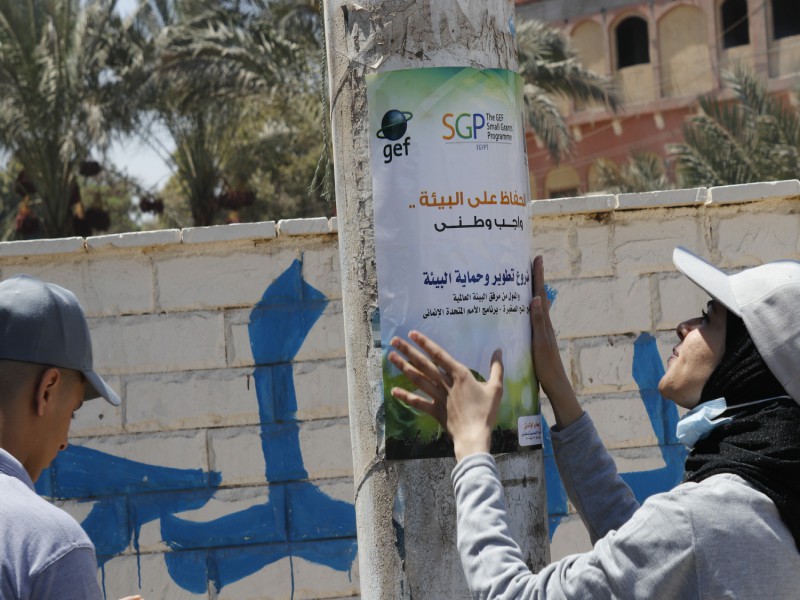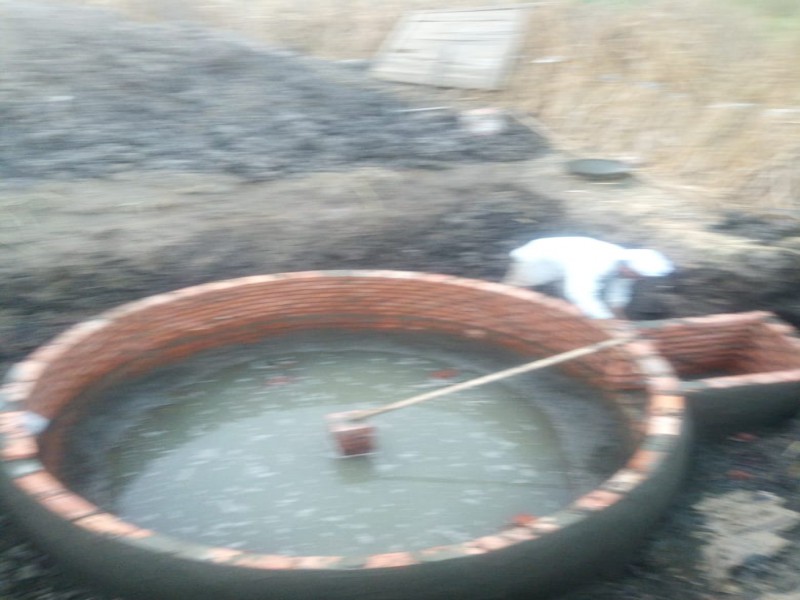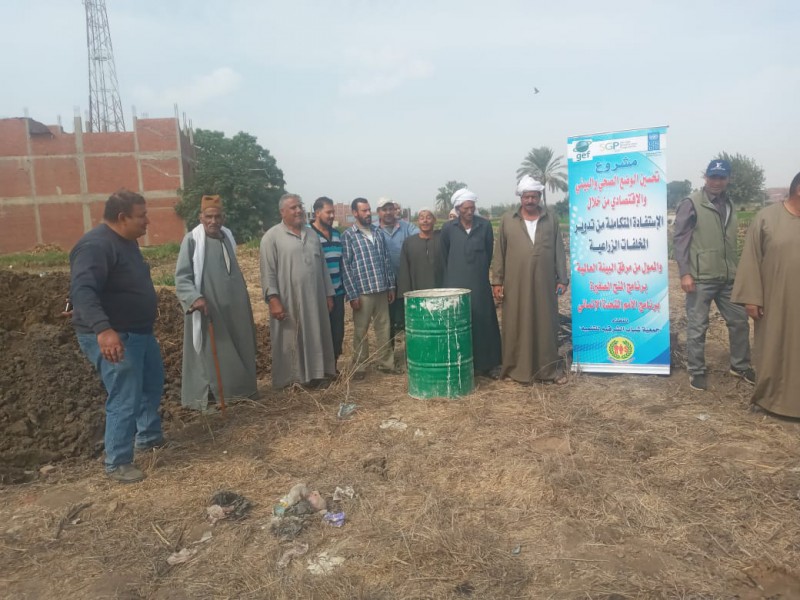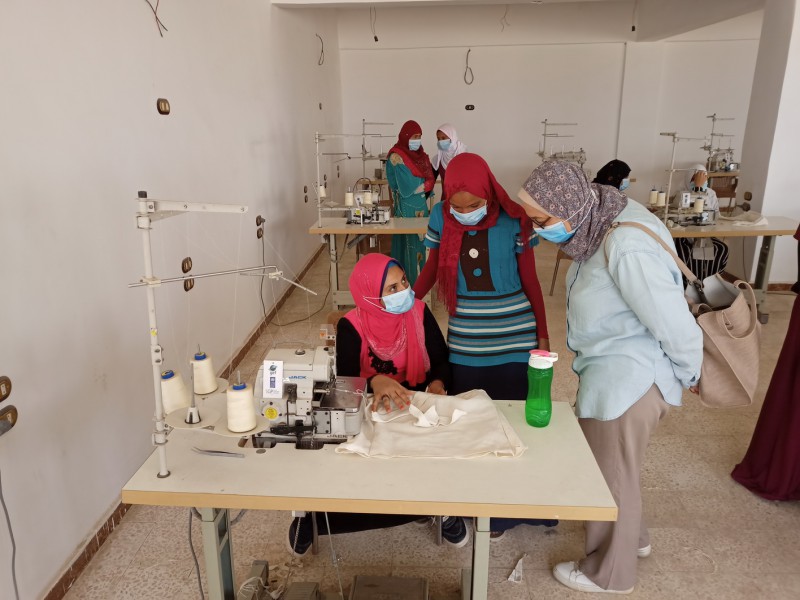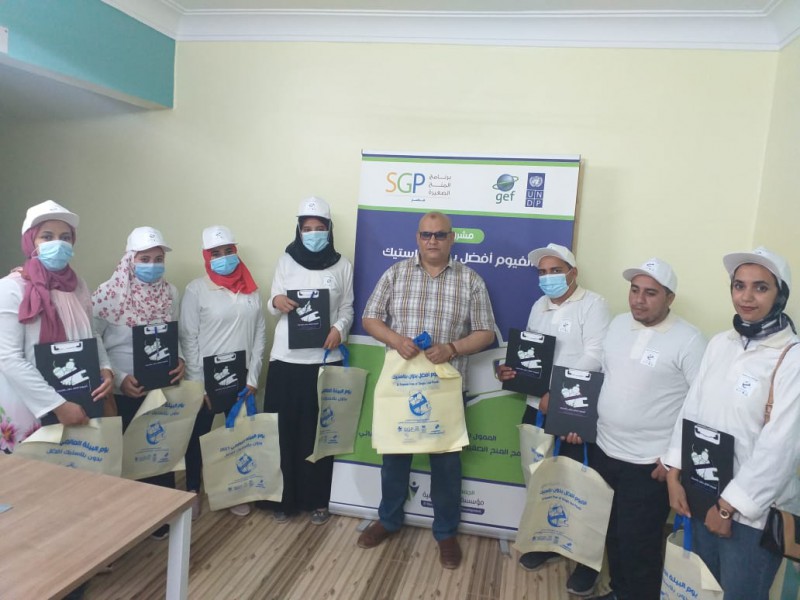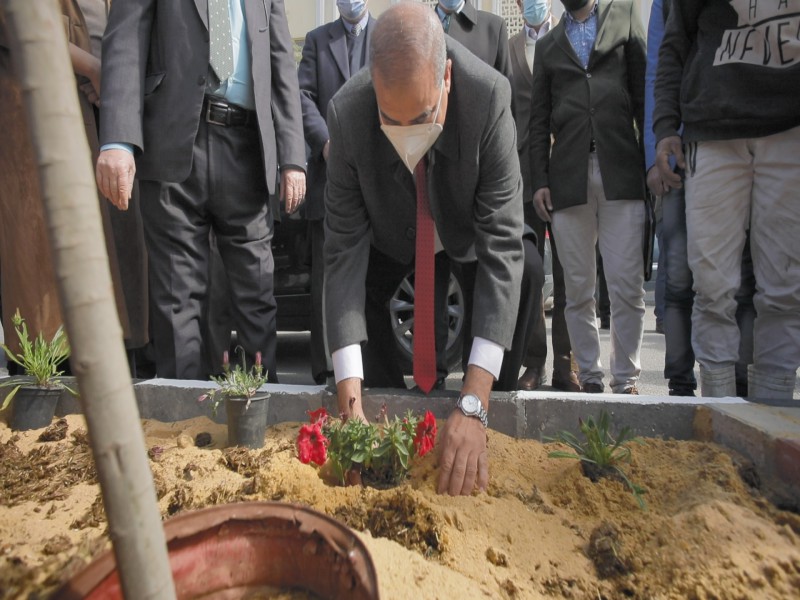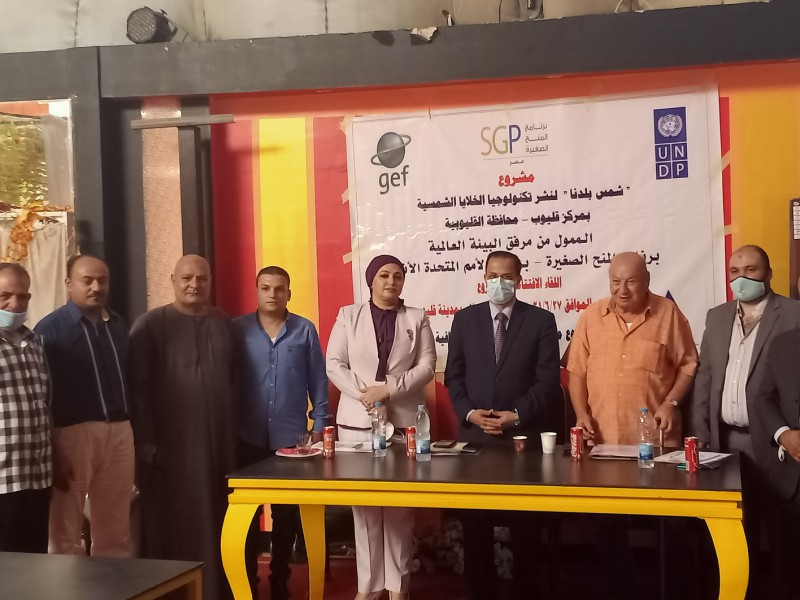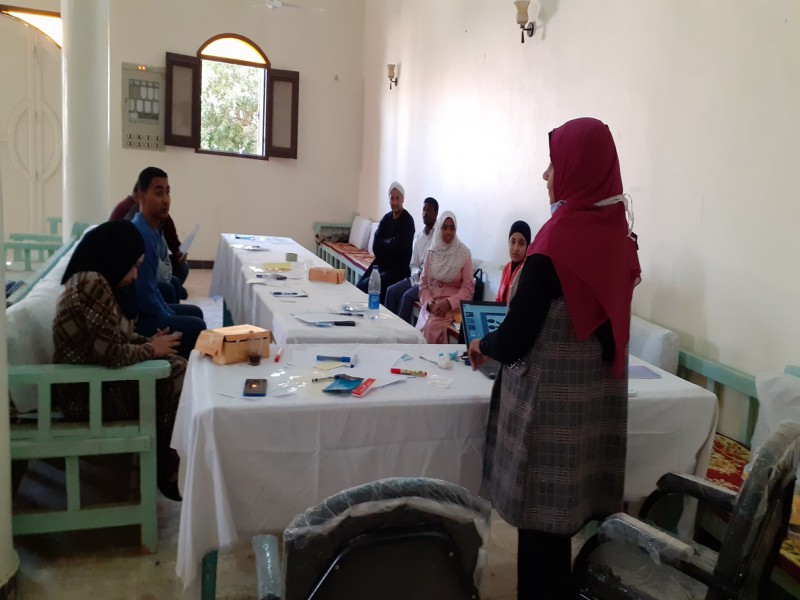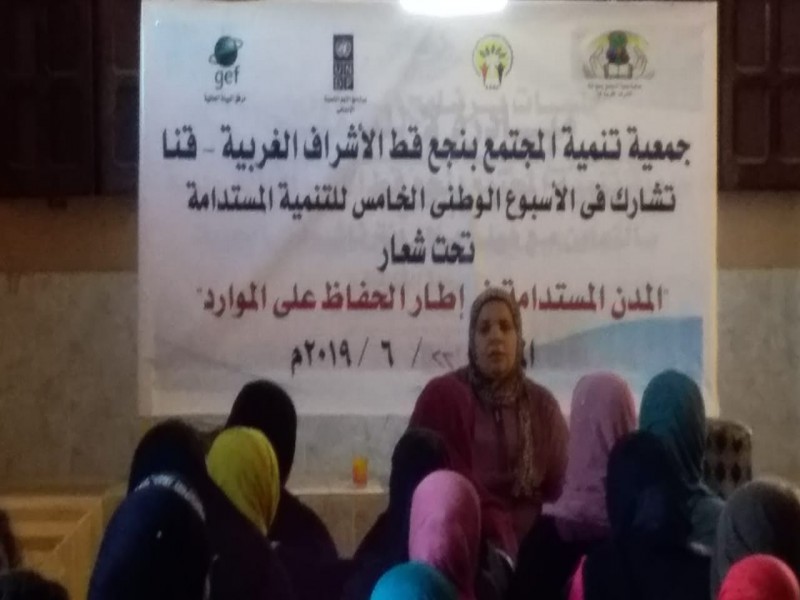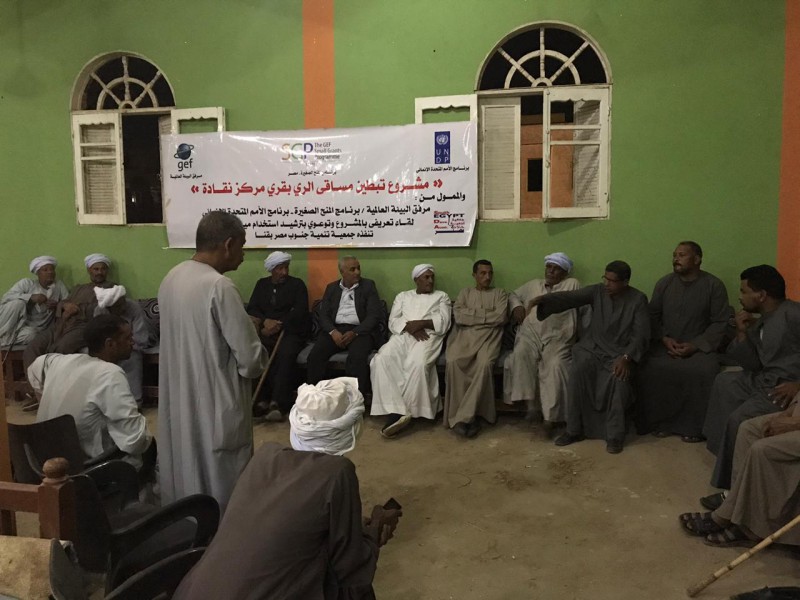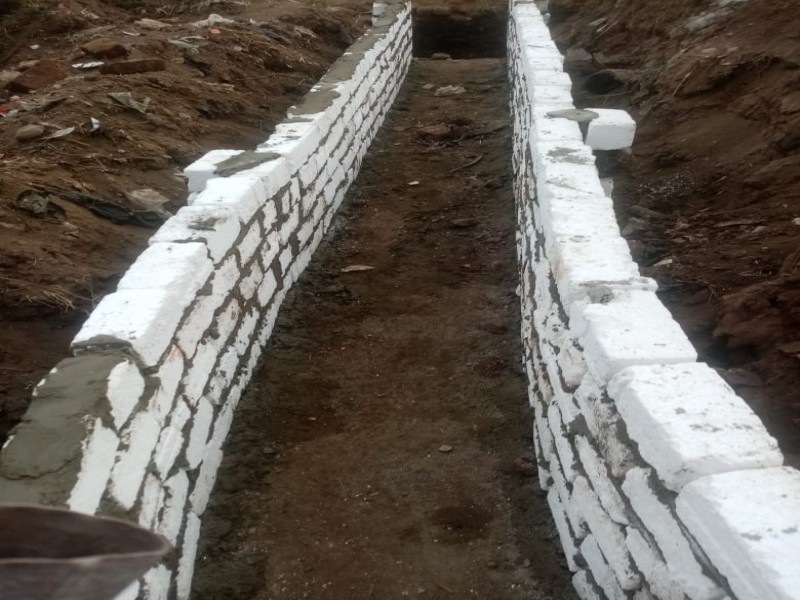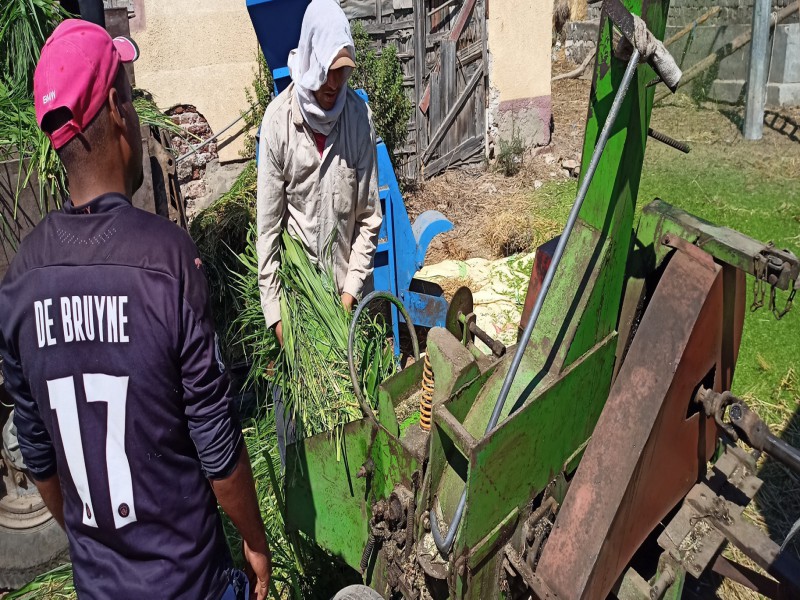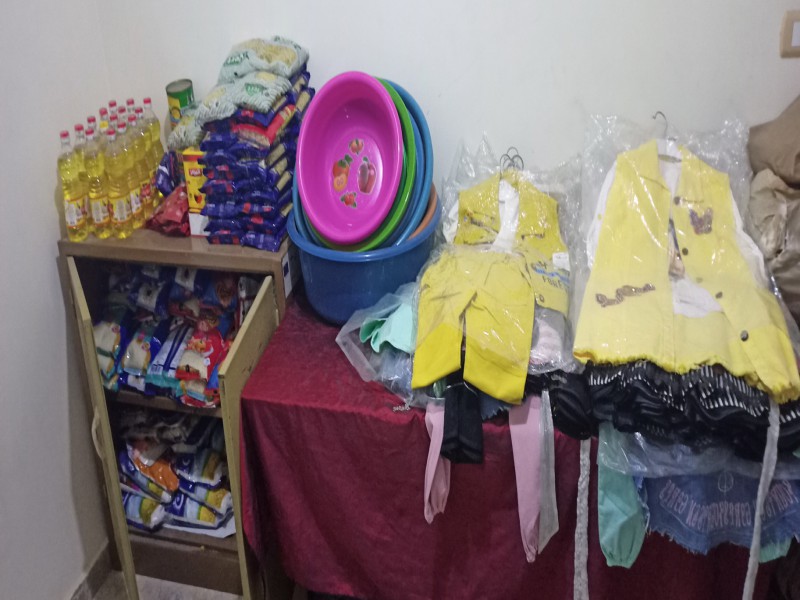Building a Modular Prototype for Converting Domestic Solid Waste into Ethanol to Replace Lead in Gasoline and to reduce the Production of Greenhouse Gases, thus Curtailing the Problems of Global Warming and depletion of the Ozone Layer. Operational Program: OP6 - Promoting the Adoption of Renewable Energy by Removing Barriers and Reducing Implementation Costs Operational Phase: Pilot Phase Grant Amount: 50,000,00 USD
ViewRecording of plant species available in that area, describing its condition from the plantation and environmental side. Identifying the important range land plantations. Identifying the endangered plantations. Cooperation with the NGOs in the region. Conducting public awarness workshops and case sudies. Documentation of the traditional knowledge of the local Bedouin in the Mediterranean Coastal Zone of Egypt. To rise up the awareness level of biodiversity problems through a notification program executed through international conferences. Notable Community Participation: Yes Capacity - Building Component: Yes Significant Participation of Indigenous Peoples: Yes Promoting Public Awareness of Global Environment: Yes Project Results Nurseries were established, plants were cultivated, meetings were held The bedouon wre aware of the importance of plants and their conservation, especially range and medicinal plants The workshop showed the sucsses of raising the awarness among the bedouin about the biological diversity Operational Program: OP1 - Arid and Semi-Arid Ecosystems Operational Phase: Phase 1 Grant Amount: 26,549,00 USD
ViewGrantee: Nature and Science Foundation Start Date: 11/ 2018 End Date: 6/ 2020 Objectives:1. National level: to support Egypt as the Head of the COP for the coming two years and also to mainstream biodiversity in all sectors of sustainable development.2. SGP Level: to support the GEF/SGP in Egypt in Operational Phase 6 (2017-2020) to achieve its objectives in assisting in the sustainable management of PAs and ensure community participation. and to present the achievements of the SGP in previous phases.3. NGOs level: to support the involvement and active engagement of the NGOs in the COP14 and considered as active actors and partners.4. Biodiversity level: to assist improving the biodiversity of Egypt in general through capacity building, increasing awareness raising with a special focus on school and university students, in addition to encouraging scientific research and innovative initiatives Goals achieved before and during the conference:· Supporting civil society organizations to actively participate in the conference and present their various work and activities. Goals achieved after the conference:· Broadcasting environmental programs on local radio for education, culture, awareness and capacity building.· Raising the competencies of university and school students on the concepts of biodiversity.· Training youth cadres on how to conduct environmental monitoring operations in protected areas.· Training on how to launch initiatives in the field of biodiversity and nature conservation.· Launching a national initiative called “Protected by its People” to emphasize the importance of youth and local community participation in supporting environmental and biodiversity issues. Communities:NGOs working in the field of nature protection and their workers, researchers, students of universities, private and public schools, a number of Egyptian universities and the general public Partners:Ministry of Environment, Nature Protection Sector in the Environmental Affairs Agency, Schools, Universities, Egyptian Forum for Sustainable Development Beneficiaries: More than 5,000 people from representatives of 15 NGOs and 11 universities
ViewGrantee: Tourism Development association in Dahshour Start Date: 7/2019 End Date: 12/2021 Objectives:Creative initiatives to economically empower poor women in Badrashin to increase income in a sustainable way by small and medium projects that are needed in the area, directly affecting the environment by recycling of palm trees wastes. Accomplishments:Capacity building and rehabilitation of 220 women for the labor market, in a way that secures them a decent income that has continuity.Providing many job opportunities for young people and women from Dahshur village.Converting palm wastes into products of economic value that generate returns for the beneficiary families.Implementation of handicraft projects related to environmental materials for the development of tourism in the Dahshur region.Eliminate pollution problems resulting from burning palm waste or dispose of them in ways that are not environmentally safe.Enhancing the growth of small and medium enterprises to support the local product. Communities:Dahshur village and a number of villages surrounding the Badrashin Center Partners:Local unit, schools, Dahshur youth center Beneficiaries: 220 women directly and more than 3000 people indirectly
ViewGrantee: Community Development and Youth Training Association Start Date: 7/2019 End Date: 12/2021 Objectives:To protect biodiversity by raising awareness and achieving sustainable development in Qaroun and Wadi El-Rayan protected areas. Accomplishments:· Raising awareness of the importance of biodiversity and natural reserves in Fayoum, for 2,650 visitors and 475 students.· Preserving biological diversity through teaching environmental monitoring methods to 35 school students.· Implementation of a pioneering program of its kind for environmental leaders for 15 women.· Improving the economic level of workers in the nature reserves through the promotion of eco-tourism.· Tourism promotion and improvement of the economic situation of a number of workers in protected areas.· Improving the sustainable management of the management team of Wadi El Rayan Reserve, by improving the services provided to visitors.· Building the capacity of the association's employees in dealing with biodiversity conservation.· Establishing partnerships with many government agencies and departments Communities:Fayoum Nature Reserves (Qarun and Wadi El-Rayan) Partners:Fayoum University, Fayoum Governorate, Environmental Affairs Agency, Qaroun Reserve, Al Rayan Reserve, Tourism Promotion Authority, Social Solidarity Directorate, Education Directorate, Fayoum Culture Palace, local unit, NGOs.
ViewGrantee: Bader for Sustainable Development Start Date: 7/2019 End Date: 12/2021 Objectives:Increase the quality of Wadi Al-Hitan in Wadi El-Rayan management systems and protecting its natural resources and provide useful information about this important global cultural heritage. Accomplishments:Digital Library Component: Providing documented information about Wadi Al-Hitan to the public and researchers. Availability of a set of high quality photographs and videos. Providing scientific and cultural articles, in addition to many scientific reports and theses. Providing videos and documentaries about Wadi El Rayan Reserve, and Wadi Al-Hitan area. Virtual Tour Component: Enable visitors to make a virtual visit to the World Heritage site in Wadi Al-Hitan. Providing a unique experience for those interested in natural heritage, environment and reserves. Contribute to enriching the site's visitors with a good amount of information, which may not be available in the event of a real visit. Enabling those responsible for raising awareness on the Wadi Al-Hitan website to display the required content in a modern and innovative way. Website component: Creation of a website dedicated to the Wadi Al-Hitan region, Wadi Al-Rayan Protectorate, in both Arabic and English. Allow browsing the website using smart mobile devices and tablets. Connecting those interested in the environment and natural heritage in the Wadi Al-Hitan region and providing information to support eco-tourism. Providing information for free, where the visitor can obtain information with ease and ease. Enable visitors to take a virtual tour of the site, which contributes to the development of tourism and increase the number of visitors. Communities:Visitors to the Wadi El Rayan Reserve, Local community in the Fayoum reserves, Lovers of natural history and ecotourism, Workers in the ecotourism sector in Fayoum Partners:Ministry of Environment, Nature Protection Sector, Fayoum University, Fayoum Culture Palace, Directorate of Education, Wadi El Rayan Reserve Beneficiaries: 500 thousand visitors annually, residents of surrounding villages, 300 workers in eco-tourism in Fayoum
ViewGrantee: Environmental Tourism Development Association Start Date: 7/2019 End Date: 12/2021 Objectives:To apply and execute programs to face pollution in Qaroun and Wadi Al Rayan protected areas in order to reserve natural resources and protect biodiversity in both PAs aiming for community beneficial and encouraging ecotourism in the area. Accomplishments:· Developing a system for solid waste management and separation from the source within the Fayoum Reserves.· Establishment of waste separation points in the Qarun and Al Rayan Protected Areas. Each point consists of 4 openings for waste separation.· Establishing an observation point to follow the movement of cruise ships in Wadi El Rayan Lake.· Cultivation of 50 fruitful palm trees within the Wadi El Rayan Reserve.· Improving the quality of tourism services provided to visitors in Al Rayan and Qaroun Protected Areas.· Raising the efficiency and support of the local community and the optimal integration of them into the tourism industry. Communities:Fayoum Nature Reserves (Qarun and Wadi El-Rayan) Partners:The Environment Department of Fayoum Governorate, the Nature Protection Sector in the Environmental Affairs Agency, Qarun Reserve Department, Wadi El Rayan Reserve Department Beneficiaries: 500 thousand visitors annually, residents of surrounding villages, 300 workers in eco-tourism in Fayoum
ViewGrantee: Egyptian Society for Endogenous Development of Local Communities Start Date: 7/2019 End Date: 12/2021 Objectives:To contribute to the upgrading of the economic value of palm products of leaves and midribs as an important ecological resource and as a local raw material that feeds in a number of small industries, to sustain the agricultural biodiversity at the local level and enhance socioeconomic development of the most needy social groups in Al-Qayat and a nearby villages. Accomplishments: Establishing small environmental industries from raw materials of wicker and palm leaf, including home manufacturing activities. Providing job opportunities for young men and women in the village of Al-Qayat and from one of the neighboring villages, for the development of the local community. Raising awareness of the importance of palm ores, as an important resource for local raw materials that contribute to economic and social development. Training and rehabilitation of women and men in the village to deal with palm ores in the context of handicraft industries. Establishing appropriate entities to organize the participation of local women's groups in its management and to benefit from its returns. Training 10 women on closing wicker products, evaluating the performance of trainees, and providing guidance in improving quality. Training of 30 women on palm wicker dyeing and braiding to raise the value of the final product and add a wider scope for innovation. Developed 12 new designs for palm wicker products using the techniques the girls learned during training. Communities:Al-Qayat village and one of the neighboring villages in Al-Adwa Center, Minia Partners:Faculty of Engineering Ain Shams University, Care International, Furniture factories, a group of designers from the association’s friends, Al-Qayat Youth Center Beneficiaries: 125 women, 8 men, 50 palm plantation owners
ViewGrantee: Environment Without Boarders Foundation Start Date: 7/2019 End Date: 12/2021 Objectives:To support sustainable ecotourism activities for the conservation of biodiversity and the development of visitor management programs in Wadi Degla and Petrified Forest protected areas. Accomplishments: Preparing and implementing a visitor management program in the Wadi Degla and Petrified Forest reserves using the latest methods used globally. Implementation of a theoretical training program in the presence of 9 staff members in the two reserves for a period of 6 days. Implementation of a practical training program for 12 staff members in the two reserves to raise their capabilities to manage the attractions in each reserve. Launching an interactive website and social media channels about the Petrified Forest Reserve. Preparing a geological guide for the Petrified Forest Reserve. Preparing a distinguished set of awareness materials about the reserve and its natural treasures in both Arabic and English. Production of a short promotional film and a set of directional boards as a guide for visitors at the entrance to each reserve. Communities:Research groups in the Wadi Degla and the Petrified Forest protected areas, visitors to the two reserves, school and university students Partners:Ministry of Environment, Ministry of Culture, Ministry of Education, Egyptian Red Crescent, Ministry of Immigration, Menoufia University, Al-Azhar University, National Discovery Group, German Cooperation Agency Beneficiaries: 16 researchers in the reserves of the Tigris Valley and the Petrified Forest, about 60,000 visitors annually, about 500 school and university students
ViewGrantee: Youth Assembly for Developing Human Resources Start Date: 7/2019 End Date: 12/2021 Objectives:To provide a sustainable solution to improve the climate situation in Kafr El-Sheikh city and mitigate the greenhouse gas emissions, by raising the community awareness of energy efficiency, and reducing electricity consumption by using LED bulbs. Accomplishments: Lighting the main Nasr Square in Kafr El-Sheikh city with 20 LED spotlights. Illuminating the streets of the villages of Mataboul and Al-Tayfa with a number of LED headlights. The economic situation of thousands of citizens has improved as a result of savings in the electricity bill. More than 2,000 families benefiting from the project have used energy-saving LED bulbs. Qualifying a team from the association with technical knowledge to repair energy-saving devices. Reducing the rates of general consumption of electricity, which reduces the emissions resulting from power generation. Qualifying community cadres to spread awareness of global warming and its effects. Increasing public awareness of the importance of energy conservation, installing LED bulbs, and reducing greenhouse gases. The existence of a model of revolving loans that helps a steady increase in the number of beneficiaries. Finding a model of partnership between the different sectors of society to address local problems with a global mindset. The existence of sustainable environmental models and a model of partnership between the various sectors of society in Kafr El-Sheikh Governorate. Communities: Kafr El-Sheikh city, Mataboul village, Al-Tayfa village Partners:The Directorate of Education, the local unit, the NGOs in the targeted villages Beneficiaries: 2000 families benefited from the sale of LED bulbs in installments, lighting the homes of 100 poor families with the saving bulbs for free
ViewGrantee: Environmental Protection Association Start Date: 7/2019 End Date: 12/2021 Objectives:The project will offers an affordable and sustainable transport through the bike share mechanism in cooperation with Fayoum University and Fayoum city. Accomplishments: Installing 4 parking units for bicycles available for use by students inside Fayoum University. Raising the awareness of Fayoum University students of the importance of using shared bikes, both economically and environmentally. Rationalizing the consumption of fuel used in transportation within the university campus. Providing permanent job opportunities for a number of team members working in the maintenance of bicycle stations. Encouraging young people to use bicycles outside the university in the city of Fayoum and the rest of the governorate's cities and villages. Communities:Students and employees of Fayoum University, thousands of people from Fayoum city indirectly Partners:Fayoum Governorate, Fayoum University, Environmental Affairs Agency, the local unit of Fayoum Center and City, General Administration of Youth Welfare at Fayoum University Beneficiaries: 20 thousand students at Fayoum University, 3 thousand employees at Fayoum University
ViewGrantee: Al-Aafak Al-Oulia for Environmental services and development Start Date: 7/2019 End Date: 12/2021 Objectives:To provide sustainable solutions to improve the climate situation in Etsa, and Fayoum city, and mitigate the greenhouse gas emissions, by raising the community’s awareness on energy efficiency, and reducing electricity consumption by using LED bulbs. Accomplishments: Enabling 738 families from the targeted villages to purchase energy-saving lamps using the revolving loan system. Raising the capacities of 14 environmental educators in the villages of the Itsa Center to educate people by using LED lights. Raising awareness of the citizens in the villages of implementing the project by using energy-saving bulbs instead of regular bulbs. Achieving an economic return for the residents of the project villages, by saving on the electricity bill. Lower rates of monthly electricity consumption, which reduces harmful emissions. Enhancing awareness of the importance of using energy-saving lamps to preserve the local and global environment. Supporting the people's sense of safety, by installing LED headlights for public streets. Communities:The villages of (Al-Hajar, Mansha’at Al-Amir, Al-Sadh, Anak, Farhat, Mutawil, Mahmoudiya, Al-Gharq, Atamna Al-Mazra’a, Al-Hamoudat) in the center of Itsa, the villages of (Sayedna Al-Khidr, and Sayedna Musa) in the center of Youssef Al-Siddiq, the building and surroundings of the Wadi Al-Rayan Reserve. Partners:The Environment Department of Fayoum Governorate, Fayoum Electricity Distribution Company, Environmental Affairs Agency, the local unit of Etsa Center, the local unit of Youssef Al-Seddik Center, popular and executive leaders Beneficiaries: 738 families directly, 14 women environmental educators, thousands of citizens indirectly
ViewGrantee: Association of Modern Women Charity Start Date: 7/2019 End Date: 12/2021 Objectives:To encourage the use of new, clean and rational electricity and rationalize the use of electricity in houses and governmental entities by awareness raising and making El-Hella a model village for energy rationalization Accomplishments: Distribution and installation of 4000 energy-saving LED bulbs on 300 families. Installing 450 LED lights in a number of service institutions (Hilla Primary School, Family Planning Clinic, Health Department, Educational Department, Youth and Sports Department, Quos Central Hospital). Installing 100 LED lights at the entrances to 4 villages belonging to the Grajos Village Council. Installing 3 solar heaters for 3 families in the village of Hilla. Implementation of training courses and awareness-raising meetings in schools, youth centers and NGOs. Establishing a maintenance center for training on repairing electrical and household appliances to rationalize energy consumption. Communities:Quos City, Hilla Village, Al Shaarani Village, Al-Harajiya Village, Najma Al-Yamani, Nag Al-Sahel, Nag Al-Kuraimat, Ezbet Yassin, Ezbet Al-Shouna, Ezbet Al-Nasr Partners:The local unit of the center and city of Quos, the Department of Electricity, the Educational Department, the Department of Youth and Sports Beneficiaries: 300 families directly - 8000 indirect beneficiaries
ViewGrantee: Um-AlKora Association for local community development Start Date: 7/2019 End Date: 12/2021 Objectives:The project aimed to reduce CO2 and other GHG, raising the environmental awareness for local communities about the importance of rationalizing energy consumption, as well as depending on solar energy as clean and renewable energy alternative to electric power. Accomplishments: Educating 376 people from the local community through the implementation of 3 seminars in coordination with the Upper Egypt Electricity Company. Providing renewable energy sources by installing 9 solar heaters with a capacity of 150 liters for 9 families. Providing job opportunities for 20 young cadres of both sexes in the repair and maintenance of solar heaters. Distributing more than 7,600 LED lights to 1,100 families using the revolving loan system. Reducing the environmental risks resulting from the wrong exploitation of electrical energy sources. Installing 44 LED lights to illuminate a number of streets in the center and city of Esna. Reducing the burdens on poor families by paying the prices of LED bulbs and solar heaters in installments. Recycle the proceeds from the sale of LED bulbs to ensure the continuity of the implementation of activities in other villages and regions. Communities:The villages of the center and city of Esna (Al-Juhaynat, Al-Salamiya, Nagaa Abu Saeed, Al-Hilla, Al-Manshiya area) Partners:Esna Center and City Council, Upper Egypt Electricity Company, Social Solidarity Department, natural and popular leaders Beneficiaries: 1213 families directly - 2000 families indirectly
ViewGrantee: Nile Royal Association for Development and social Services Start Date: 7/2019 End Date: 12/2021 Objectives:To promote the use of solar powered irrigation systems in irrigation, in order to support cost-effective and sustainable agriculture practices. Accomplishments: Installation of 10 solar power stations with a total capacity of 305 hp covering an area ranging between 100 and 120 feddans, which were installed during the first year of the project. Training 50 young people on installing and maintaining solar power plants, to create new jobs and improve the level of income. Training of 70 beneficiaries of young farmers who have acquired the basic skills and knowledge necessary to carry out simple maintenance of solar power plants. Increasing the awareness of 250 farmers who are members of agricultural associations in Luxor Governorate about the environmental risks, the impact of climate change on agriculture, and the importance of using alternative energy. Reducing the use of diesel as fuel for irrigation machines by about 630 liters per day, for 7 hours per day, at a rate of 90 liters per hour. Reducing carbon dioxide emissions from fossil fuels, as a direct result of using solar energy to generate electricity. Communities:The village of Rizeigat Bahri in the center of Armant, the village of Al-Habil in the center of Al-Bayadia Partners:Directorate of Agriculture, Agricultural Bank of Egypt, National Bank of Egypt, Luxor Governorate Beneficiaries: 320 direct beneficiaries of solar power plants, and hundreds of indirect beneficiaries of training courses and awareness campaigns
ViewGrantee: Al Shorouk Association for Development Start Date: 10/2019 End Date: 12/2021 Objectives:Installing 45 biogas units and producing clean energy and high-quality organic fertilizer, through the use of animal waste to improve soil properties, for a number of farmers in Minya Governorate. Accomplishments: Increasing public awareness of the importance of using clean and environmentally friendly energy means through biogas production units. Improving the environmental, economic and living conditions of 130 farmers from the targeted villages. Raising the awareness of women and housewives of the importance of preserving the environment and benefiting from animal waste. Protecting the environment from pollution by recycling agricultural and organic waste and using it to produce clean gas for cooking, and organic fertilizer to improve agricultural productivity. Communities:Al-Awam village, Al-Fuqai village, Hilweh village, Al-Taybeh village Partners:Minya Governorate, Directorate of Social Solidarity, Directorate of Agriculture, Local Units in Cities and Villages, Bioenergy Corporation, Department of Environmental Affairs in Minya Governorate, the private sector Beneficiaries: 1234 direct beneficiaries (390 farmers, 318 women, 500 children, 25 officials)
ViewGrantee: Together Association for Development Start Date: 10/2019 End Date: 12/2021 Objectives:To provide cleaner sustainable energy for households and produce high quality organic compost to increase agricultural land productivity using animal wastes. Accomplishments:· Establishment of 21 biogas units with a capacity of 3 cubic meters for each unit.· Improving environmental practices related to clean energy in 50 families.· Increasing 500 families' awareness of the benefits and advantages of using bioenergy and the safe disposal of animal waste.· Providing job opportunities through the installation, operation and maintenance of biogas units in the targeted villages.· Implementation of 4 training workshops to build the capabilities of the project team. Communities:The villages of the Isna Center (Al-Zaniga, Al-Ayadat (Asfoun), Tafnis, Al-Shaghb, Al-Nemsa village, Al-Moalla, Al-Hilla, Al-Ghurairah village) Partners:The Bioenergy Corporation, the Agricultural Administration in Esna, the agricultural associations in the targeted villages, the private sector Beneficiaries: 21 families directly, 500 families indirectly
ViewGrantee: Bir Al-Waldin Society for Social Services in Dahshur Start Date: 3/2020 End Date: 12/2021 Objectives:The projects aim to have a sustainable solid waste management system in Dahshour area and raise the awareness of inhabitants on environmental challenges which will positively impact their environment and health. Accomplishments: The participation of 2000 families in the residential waste collection system. Raising the awareness of 3000 housewives in Dahshur community about the dangers of dumping waste in the streets and waterways. Raising the awareness of 300 schoolchildren on how to safely dispose of waste. Supporting 12 governmental and private institutions with waste collection funds. Converting 5 random waste dumps into green yards. Enhancing income opportunities for 40 women through training and support with separate units from the source. Providing job opportunities in the production of organic fertilizer (vermicomposting) through the recycling of waste. Communities:Dahshur Village, Badrashin, Giza Partners:Dahshur Local Unit, Dahshur Primary School Beneficiaries: 5549 direct beneficiaries, thousands of Dahshur villagers indirectly
ViewGrantee: Roh El Hayat Association for Development and Dialogue Start Date: 3/2020 End Date: 12/2021 Objectives:Protecting the environment from pollution by reducing greenhouse gases resulting from burning agricultural and organic waste, by recycling it for use in the production of biogas and organic fertilizers and improving the lives of farmers. Accomplishments: Establishing 15 biogas units for the production of biogas for domestic use for 15 families. Creating 15 compost piles using animal and agricultural waste. Implementation of 15 training courses with the participation of 200 small farmers to raise awareness of ways to recycle agricultural waste. Implementation of guidance sessions for small farmers to raise awareness of the importance of preserving the environment by making use of agricultural waste. Organizing 4 workshops to prepare plans for the strategic management of the project in 12 local village units. Communities:Villages in 4 districts in Fayoum Governorate (Itsa, Al-Jaafra and Shadamoh in the Itsa district, Mansha’at Al-Jamal in the Tamiya district, Ibshaway, Shakshuk and Abu Shanab in the Ibshaway district, Fayoum and Mansha’at Rahmi in the Fayoum district) Partners:Fayoum Governorate, Bioenergy Corporation, Environmental Affairs Agency, Directorate of Agriculture, local units in the targeted centers (Itsa, Tamiya, Ibshaway and Fayoum), NGOs, the private sector Beneficiaries: 2,680 beneficiaries (30 families directly, 2,600 farmers indirectly, 50 rural leaders)
ViewGrantee: Shabab El Sharqia Association for Development Start Date: 3/2020 End Date: 12/2021 Objectives:Training farmers to recycle agricultural waste to improve health, environmental and economic conditions in three local units in Zagazig Center in Sharkia Governorate. Accomplishments: Collecting and producing 300 tons of agricultural waste and converting it into compost and marketing it. Training of 60 farmers to recycle agricultural waste and turn it into high quality organic fertilizer. Training 40 students at the Faculty of Agriculture and Technology, Zagazig University, to launch small projects through the recycling of agricultural waste. Implementation of 5 seminars and 3 seminars to raise awareness of farmers and the people of the targeted villages of the importance of benefiting from agricultural waste and converting it into products of economic value. Printing 1,000 brochures for the project and distributing them in the targeted villages to show how to make use of agricultural waste. Protecting the environment from the products of burning agricultural waste, by utilizing and recycling it. Communities:The villages of 3 local units in the center of Zagazig (Shobak Basta, Al-Aslouji, Bani Amer) Partners:The Environmental Affairs Agency in Sharqia, Zagazig University, agricultural associations in the targeted villages, the Specific Union for Family, Maternity and Childhood Welfare in Sharqia, the Egyptian Association for Integrated Solutions, Development and Training Beneficiaries: 100 beneficiaries directly through agricultural waste recycling, 11 youth benefited from job opportunities in the project, and 2,000 beneficiaries indirectly
ViewGrantee: Seen 9 for Sustainable Development Start Date: 3/2020 End Date: 12/2021 Objectives:To reduce dependence on plastic bags and replace them with bags made of fabric, which contributes positively to climate change, in addition to raising public awareness on plastic harms. Accomplishments:· Producing 25 thousand cloth bags and distributing most of them to citizens in the project implementation areas.· Production and distribution of 10,000 bags and selling at least half of them to the pioneers of a chain of a major trading company.· Reducing the use of plastic bags, which contributes to alleviating the burden on the environment and natural resources.· Training and rehabilitation of 36 women in the manufacture of cloth bags and the employment of 12 of them on a permanent basis.· Spreading awareness among the people of the beneficiary areas of the benefits of environmentally friendly bags. Communities:The village of Manshiet Arab Soliman in Giza Governorate, and the Gesr Al-Suez area in Cairo Governorate Partners:National Research Center, Carrefour Wholesale Trade Company Beneficiaries: 36 women directly, and 35,000 people indirectly
ViewGrantee: Professional Cooperation Association for Small and Medium Industries Start Date: 3/2020 End Date: 12/2021 Objectives:Maximizing the use of solar energy to reduce the consumption of electrical energy focusing on public places such as youth center, school, mosques, church, etc., in Qaliubiya Governorate. Accomplishments: Installing 5 solar energy units with a capacity of 5 kilowatts and connecting them directly to the public grid. Spreading the idea of solar energy and knowing its uses among school and university students and the people of the region. The demand of many parties to implement solar energy cells in their premises to save the use of electric energy. Training of 100 young people on the maintenance and installation of solar panels. Activating and encouraging the use of a solar energy model in the association's branch in Shubra El-Kheima. Implementation of guidance campaigns and seminars to raise awareness and introduce the idea of renewable energy. Opening job opportunities for some young people in a new and unprecedented field in the Egyptian labor market. Communities:West Shubra El-Kheima (a mosque, a church, a youth center, an elementary school, and a medical center) Partners:Ministry of Health and Population (Health Administration in West Shubra El-Kheima), Ministry of Youth and Sports, Ministry of Education, Egyptian Cathedral Beneficiaries: 4 government agencies, 500 participants in seminars, 100 young trainees
ViewGrantee: Al-Nouran Foundation for Development Start Date: 10/2020 End Date: 12/2021 Objectives:To provide and widely disseminate alternatives of single-use plastic bags and to mainstream the reduction of using plastic in other landscapes in OP6 Accomplishments: Increasing the community participation, through the formation of effective working groups, which include the project's partner agencies and bodies in the community, to reduce the use of plastic. Preparing a strategy and an executive action plan to manage plastics sustainably in the city of Fayoum. Increasing environmental awareness of the plastic problem for young entrepreneurs, through the implementation of a training program and field visits to facilities working in plastic recycling. Establishing a unit for the production of single-use plastic alternatives, as one of the most important outputs of the project, and an embodiment of the principle of sustainable impact of the project. Increasing the volume of community participation, especially youth, in combating plastic and climate change issues. The Governor's decision (No. 190 of 2022) was issued regarding banning the use of single-use plastic bags and tools in public stores in the field of food (vegetables, fruits, bread) and pharmacies in the Fayoum governorate. Communities:Fayoum City, Tunis Village, Wadi El Rayan Protected Area Partners:Fayoum University, Directorate of Education, National Council for Women, Directorate of Youth and Sports, Natural Reserves in Fayoum, Association of Potters in Tunis Village, Petah Association in Tunis Village, Health Directorate, Fayoum Culture Palace Beneficiaries: 47 thousand citizens received alternatives to plastic, 6000 beneficiaries of door-knock campaigns, 5000 visitors to the natural reserves in Fayoum, 1200 youth and club and youth center visitors, 300 students and teachers, 100 women pioneers of the National Council for Women, and 120 workers in supermarkets and pharmacies partner.
ViewGrantee: Forum of Dialogue and Partnership for Development Start Date: 10/2020 End Date: 12/2021 Objectives:To set a model of renewable energy & energy efficiency through installing rooftop solar panels to generate electricity and replacing traditional lighting with LED saving bulbs in the main buildings at Al Azhar University. Accomplishments: Producing the equivalent of 127 megawatts of electrical energy from the solar power plant annually. Reducing carbon dioxide emissions by about 80 tons per year. Saving consumption at a value of 160 thousand pounds in the first year, and this value increases with the increase in the electricity tariff. Reducing the rate of energy consumption in the administrative building and the main building of the university. Changing the concept of renewable energy systems, and adopting the idea of replacing ordinary bulbs with energy-saving bulbs. Increasing awareness among students and university employees of the importance of integrated environmental systems and how to deal with them. Establishing a system for safe disposal and sorting of solid waste within the university community and other communities. Establishing a permanent center to educate university members about the importance of using solar energy and integrated ecosystems. Saving in water consumption in the main and administrative building of the university. Providing green spaces planted with plants and trees for shade inside the university campus, to reduce heat emissions. Communities:Al Azhar University, Nasr City Partners:Al-Azhar University, Egypt Youth Association for Development and Environment, Islamic Center Association in Haram, Arab Foundation for Media and Culture Beneficiaries: 5000 students and employees directly benefited from the awareness campaigns, 1707 employees (1272 males and 435 females) benefited from solar energy plants, 336 male and female students and 79 employees benefited from the workshops
ViewGrantee: General Association for Caring Talented Start Date: 10/2020 End Date: 12/2021 Objectives:To provide 300 bikes to be distributed through the revolving fund mechanism, in addition to installing bike racks in Maadi district. Accomplishments: Purchasing 229 environmentally friendly bicycles for distribution to beneficiaries in the governorates of Greater Cairo. Distribution of 154 bicycles to young beneficiaries in the form of a loan, 37 for females and 117 for males. Reusing the installments as revolving loans to buy another 150 bikes. Awareness of the economic and health benefits of using the bicycle instead of the means of transportation that pollute the environment. Printing 300 metal plates with the name and logo of the project, the financier and the association and installing them on the bike frame. Forming a community committee tasked with providing advice and support for the project. Communities:Maadi area As a first phase, the project was expanded to include the governorates of Cairo, Giza and Qaliubiya Partners:Youth and Sports Directorates, Sports Clubs and Youth Centers, Civil Society Institutions Beneficiaries: 154 young men and women directly benefited (37 females, 117 males), 1,375 family members of the beneficiaries, 500,000 residents of Maadi indirectly
ViewGrantee: Institute for Cultural Affairs Start Date: 10/2020 End Date: 12/2021 Objectives:Spreading solar energy technology by installing solar panels on the roofs of 3 public facilities in Qalyub Center, to reduce greenhouse gas emissions, and training young people to install and maintain solar panels. Accomplishments: Raising environmental awareness among the local population in Qalyub Center in the field of using alternative energy sources. Providing clean energy through the installation of solar energy plants in 4 service institutions (Qalyub Fever Hospital, Qalyub Medical Center, Qalyub Conjunctive Hospital, Primary School) Rationalizing the electricity consumption bill of the targeted facilities and relieving pressure on the public network. Providing 4 units of solar cells as guiding models for the people of Qalyub Center. Training of 12 young people to install and maintain solar cells in the targeted communities. There are 4 government institutions in which employees have been trained to manage and follow up on solar energy projects. Implementation of 5 seminars and 2 campaigns to educate people in Qalyub community about the importance of using solar energy. Communities:4 service institutions in Qalyub city (Qalyub Fever Hospital, Qalyub Medical Center, Qalyub Remedy Hospital, Qalyub Primary School) Partners:The Ministry of Health (Qalyub Fever Hospital, Qalyub Ophthalmology Hospital, Qalyub Medical Center), the Ministry of Education (Qalyub Primary School), solar cell manufacturers. Beneficiaries: 500 students attending the school, the number of 1000 attending the Qalyub Medical Center, the number of 700 attending the Qalyub Fever Hospital, the number of 400 patients attending the Qalyub Ramad Hospital
ViewGrantee: Environmental and Community Development Association in Dandara Start Date: 7/2019 End Date: 12/2021 Objectives:Improving the sustainable management of agricultural lands, combating agricultural soil degradation resulting from the excessive use of irrigation water, using laser leveling techniques, and developing irrigation canals to rationalize water consumption. Accomplishments: Leveling 360 acres of agricultural land by laser in the targeted areas annually. Developing and lining 3000 linear meters of agricultural watering cans in the villages of Dandara and Al-Tramsa. Reducing the rate of irrigation water consumption by 250 cubic meters per feddan per month in the targeted areas. Increasing the area of agricultural land by 68 carats on both sides of the watering cans after lining them. Implementation of 25 awareness seminars for farmers and families, with 2,000 farmers in the project implementation areas. Capacity building and training of 200 farmers on watering maintenance works. Implementation of 6 seminars with farmers and stakeholders, targeting 80% of farmers. Training programs to build the capabilities of the project team. The rate of fuel consumption used in irrigation machines decreased by 15% per acre. Communities:The village of Dandara and its dependencies with a total of 18 followers and villages, the village of Al-Tramsa and its dependencies with a total of 10 villages Partners:Directorate of Agriculture, Directorate of Irrigation, Agricultural Associations, Agricultural Association in Dandera, Agricultural Association in Tramsa, Canals Water Users Associations Beneficiaries: 285 farmers directly benefited from lining their canals, 360 benefited from laser land leveling, 1195 indirectly benefited, including 195 women
ViewGrantee: Community Development Association in Naga'e Qet Start Date: 7/2019 End Date: 6/2021 Objectives:Preserving agricultural land from deterioration, rationalizing irrigation water and maximizing its use in the villages of Qena Center.. Accomplishments:· Building an area of 4,002 square meters of private irrigation canals, and pouring them with regular concrete.· Saving 16 thousand cubic meters of water wasted per month, as a result of designing, building and lining irrigation canals.· Increasing the agricultural area by adding areas on both sides of the length of the canal, with a total of about 176 carats.· Increasing the productivity of the feddan in a way that positively affects the increase in farmers' incomes by increasing the area and productivity.· Providing permanent irrigation for about 3,000 feddans under the control of the targeted villages.· Reducing the cost of feddan irrigation as a result of reducing the rate of irrigation hours, and rationalizing energy consumption.· Saving farmers' time and effort due to long irrigation periods, and reducing disputes between farmers.· Reducing the infection of agricultural crops with diseases as a result of the spread of weeds and insects, and reducing the use of pesticides harmful to humans and animals. Communities:4 villages in the center of Qena (Al Ashraf, Abnoud, Karam Omran, Al Dom) Partners:Directorate of Agriculture, Directorate of Irrigation, Agricultural Associations, the National Council for Women, Canal Water Users Associations, NGOs in the project implementation areas Beneficiaries: 1600 farmers (1000 beneficiaries from mesqas - awareness 400 men and 200 women) - 400 workers
ViewGrantee: South Egypt Development Association Start Date: 7/2019 End Date: 6/2021 Objectives:Addressing the problem of agricultural land degradation by lining irrigation canals and reducing water losses, to enable more farmers to benefit from the available irrigation water, and to make irrigation systems more efficient. Accomplishments: Building and lining 21 watering cans for 21 clients, with a length of 4105 meters, to serve 150 farmers, with a total area of 300 acres. Providing an area of 70 carats of arable land through the lining process. Provide 15 thousand cubic meters of irrigation water per month. Providing the number of irrigation hours in a way that rationalizes water consumption and saves the farmer's effort in the irrigation process. Reducing the use of fuel at a rate of 10 liters of diesel per farmer per day, and reducing pollutants by 50%. Elimination of fallow lands by adding an area of 70 carats on both sides of the mesqas. Reducing the use of agricultural pesticides to eliminate weeds and insects on both sides of the watering can. Raising the awareness of 2000 men and women farmers about the importance of rationalizing water and making maximum use of it. Providing irrigation water for about 300 acres of agricultural land. Communities:7 villages of Naqada Center (Awsat Qmola, Bahri Qmula, Qarya, Sous, Danfiq, Cement, Bechlaw) Partners: Directorate of Agriculture, Directorate of Irrigation, Agricultural Associations, Canal Water Users Associations Beneficiaries: 450 farmers (150 beneficiaries from mesqas - awareness raising 240 men and 60 women) - 21 clients (17 men and 4 women) - 1000 indirect beneficiaries (450 women and 550 men) - 60 young people
ViewGrantee: Key of Life Association Start Date: 7/2019 End Date: 12/2021 Objectives:Preserving agricultural land from deterioration, rationalizing irrigation water and maximizing its use, by lining canals to conserve irrigation water, energy and land in the Armant Center. Accomplishments: Lining 4000 linear meters of watering cans for 350 small farmers. Improving irrigation systems to serve 250 feddans in a number of villages in the Armant Center. Providing an area of 60 carats of agricultural land on both sides of the mesas that have been lined. Providing 9000 cubic meters of irrigation water per month. Saving the number of hours of irrigation, thus saving time, effort and the use of diesel. Ensuring that irrigation water reaches the ends of the canals, in order to achieve fair water distribution among farmers. Increasing the awareness of 400 farmers of the importance of protecting agricultural land from deterioration, and of the importance of rationalizing irrigation water. Building the capacities of farmers in forming water user associations, to increase their capacity to manage the available water resources. Providing irrigation water for about 300 acres of agricultural land. Communities:3 villages in the Armant Center (Al-Marais, Hajer Abu Daghar, Hajer Al-Marais) Partners:Agricultural administration, irrigation management, agricultural associations, civil associations Beneficiaries: 350 direct beneficiaries of small farmers, 400 women of farmers' families
ViewGrantee: Al Nahda Association for Agricultural Development and Water Management Start Date: 3/2020 End Date: 12/2021 Objectives:Improving the standard of living of small farmers, and establishing safe and stable communities in some villages affected by soil salinity in the center of Sidi Salem, through the rehabilitation of salinized agricultural lands, making optimal use of them, and incorporating them into a comprehensive agricultural development system based on agricultural and industrial integration. Accomplishments: Stop the deterioration of agricultural land by adopting integrated systems for bio-saline agriculture. Introducing the cultivation of non-traditional and salt-tolerant crops and improving and sustaining their productivity. Diversification of the sources of self-sufficiency in grains, and their manufacture in different forms of food. Increasing the utilization of green fodder and preserving it in a processed form (silage) to feed livestock and a source of income. Raising the efficiency of economic and nutritional utilization of dry agricultural residues to feed on them, and to produce organic fertilizers. Increasing the quality of processed animal products, such as dairy products. Increasing the income of farmers in the villages participating in the implementation of the project. Economic and social empowerment of farmers' wives, through small businesses. Increasing the effectiveness of women's participation in spreading and adopting alternative crops. Treating agricultural wastewater to reduce the bad effects of irrigation with wastewater. Improving the quality of degraded lands, preserving the cultivated areas, and reducing the degree of land waste. Providing irrigation water by using low-water consumption, salinity-resistant crops. Proposing new and innovative models for the network of covered agricultural drains fields, to work on solving the drainage problem. Communities:4 villages in Sidi Salem (Al-Qun, Abdel-Dayem, Zubaydah Al-Bahriya, Abu Eleiwa Al-Sharqiya) Partners:The Egyptian Center of Excellence for Biosaline Agriculture, Ministry of Agriculture, agricultural associations in the beneficiary villages Beneficiaries: 366 farmers (61 directly beneficiary families with an average of 6 members per family), 690 indirectly benefited small farmers, 140 rural women, 45 agricultural extension workers
ViewGrantee: Beit Ala AlSakhr Association for Development & Community Care Start Date: 10/2020 End Date: 12/2021 Objectives:Enhancing the maximum benefit from the e-waste collection and recycling system, reducing its risks that cause climate change, and increasing the adaptive capabilities and resilience of the targeted areas towards climate changes. Accomplishments: Collection and recycling of one ton of e-waste per month, half a year after the start of the project, at a rate of 6 tons during the first year, in the targeted areas. Activating a business incubator and preparing an electronic platform for collecting and recycling electronic waste. Increasing societal awareness of the importance of preserving the environment, providing new mechanisms to reduce greenhouse emissions, and transforming potential damages into environmental benefits. Provide models and social economic mechanisms to manage the collection and recycling of e-waste within the targeted areas, in order to meet the needs of the community. Activation and application of the commodity barter model in exchange for a kilo of electronic waste. Forming a team of volunteers, as ambassadors for the environment, in the targeted areas to educate citizens about the importance of recycling and benefiting from electronic waste. Communities:Ain Shams and Al-Matareya areas in Cairo, Al-Khosos city, Qalyubia Governorate Partners:World Without Borders Foundation for Development, Thimar Al Karma Foundation, Al Abdulrahman Association, Noor Baladna Center for Development, Popular and Parliamentary Leaders in the Project Areas, National Initiative for the Elimination of E-waste, Private Sector
ViewGrantee: Egyptian Youth Association for Development and Environment Start Date:10/2020 End Date:12/2021 Objectives:Spreading environmental awareness of the issue of solid e-waste, and reducing the environmental and health impacts resulting from it, by setting up a system for the proper management and safe disposal of e-waste among the youth sector in a number of universities and the surrounding areas. Accomplishments: Raising awareness among the participants about the importance of electronic waste management and its safe disposal. Positively interact with the e-waste issue and develop new proposals to deal with it. Some participating students hold meetings within their universities to educate the rest of the students who are not participating in the program. Laying foundations for dealing with e-waste generated by the university, and mobilizing the support of university presidents and their deputies. Establishing 9 e-waste collection points within the universities in which the project is being implemented. Collecting more than 2,500 electronic waste pieces from students, and delivering them to a factory for safe disposal. The opening of Tanta University's e-waste collection center at the level of Gharbia Governorate, as one of the project's results. The League of Arab States adopts the project as one of the activities of the Arab Union for Youth and Environment organizations, with directives to circulate it to youth organizations. Communities:8 universities (Al-Azhar, Cairo, 6 October, Sadat, Menoufia, Beni Suef, Tanta, Obour institutes), a group of sustainable development schools in Cairo, the General Union of Scouts and Guides Partners:Ministry of Environment, National Solid Waste Program, Ministry of Youth and Sports, Arab Union for Youth and Environment, Egyptian Forum for Sustainable Development, Targeted Universities, Private Sector, Media Beneficiaries: 983 participating university students, 25 university youth welfare officials, 25 media professionals, 3250 indirect beneficiaries
ViewGrantee: Arabic Foundation for Media &Culture Start Date: 10/2020 End Date: 12/2021 Objectives:The project aims to increase the visibility of SGP projects and activities in line with the OP6 Knowledge Management Strategy as well as to develop management and dissemination of SGP knowledge to all stakeholders and provide comprehensive and accurate information, highlighting the activities of the SGP in OP6. Accomplishments: Filming and producing 13 video films about projects funded by the Small Grants Program during the sixth practical phase. Filming and producing a comprehensive film on the sixth practical phase of the Small Grants Program. Preparing and designing a comprehensive booklet of the projects of the sixth practical phase in both Arabic and English. Managing pages on behalf of the Small Grants Program on social networking sites (Facebook, Instagram, YouTube) Implementation of funded advertising campaigns to promote the content and news of the SGP. Design and implementation of (Booth) on behalf of the SGP that can be demounted and installed for use in various forums. Communities:Users of social networking sites in various governorates, associations implementing projects of the sixth practical phase, civil associations in project implementation areas Partners:The associations implementing the projects of the sixth stage, the local authorities in the areas of project implementation, the Association of the Arab Office for Youth and the Environment
View